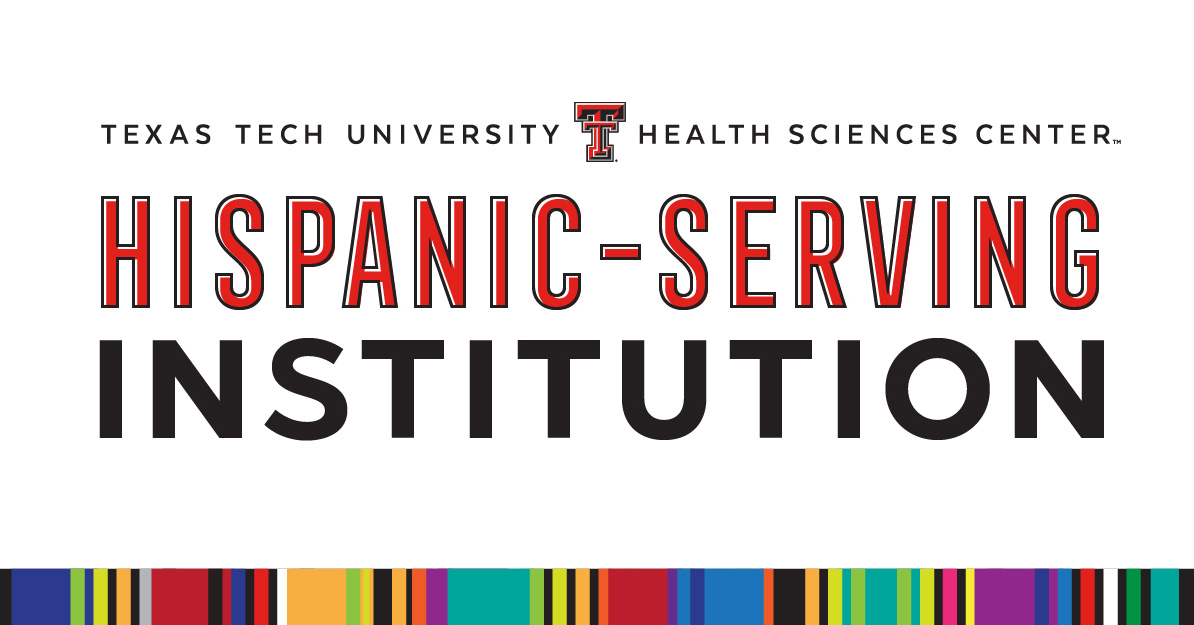TTUHSC Recognized as a Hispanic-Serving Institution
Strengthening the Culture to Create an All-Inclusive Foundation

On February 24, Texas Tech University Health Sciences Center (TTUHSC) President Lori Rice-Spearman, Ph.D., announced that the U.S. Department of Education has recognized TTUHSC as a Hispanic-Serving Institution (HSI). HSI designation enables the university to strengthen its ongoing efforts to recruit and support underrepresented students, grow a more diversified faculty and better serve its communities as a comprehensive health care institution.
TTUHSC is only the third health sciences center in the state of Texas to receive HSI status. Rice-Spearman said the HSI status builds on the university’s foundation to enrich the experiences of all underserved populations and train future health care professionals to serve a more diverse population.
“This recognition as a Hispanic-Serving Institution supports our vision to transform health care through innovation and collaboration,” Rice-Spearman said. “The status expands opportunities to work collaboratively not only within our institution, but also with external community partners in all areas of academic medicine. As a result, we anticipate leading efforts where innovative contributions allow us to better serve all populations, establishing a culture that will serve as a model for others.”
This accomplishment positions TTUHSC among the 569 institutions across the country that claim HSI status – which also makes available dedicated U.S. Department of Education Hispanic-Serving Institutions Grant Programs.
According to Best Colleges, in 1976, Hispanic students made up 4% of all college students; by 2019, they represented nearly 22% of college students. Today, Hispanic/Latino students rank as the second-largest ethnic group in higher education and HSIs educate 66.8% of all Hispanic students in the United States.
To receive HSI status, the U.S. Department of Education requires a Hispanic/Latino undergraduate student population of at least 25% in addition to other criteria. TTUHSC reported 27% of Hispanic undergraduate students in Fall 2019 and began the process of applying for HSI designation.
HSI was established under Titles III and V of the Higher Education Act of 1965 to improve higher education accessibility for Hispanics and makes available grant funding through the U.S. Department of Education and other federal agencies. Rice-Spearman explained that this will help the university leverage resources on a national level to support coursework, outreach programs and research opportunities to enhance the cultural experiences and environments for students, faculty, staff and patients.
As a Hispanic-Serving Institution, TTUHSC continues to take thoughtful, innovative, and inclusive steps forward, training the next generation of health care providers that will serve a more diverse population across Texas.
Related Stories
Celebrating Veterans: TTUHSC’s General Martin Clay’s Legacy of Service and Leadership
From his initial enlistment in the Army National Guard 36 years ago to his leadership in military and civilian health care management roles, Major General Martin Clay’s career has been shaped by adaptability, mission focus and service to others.
Texas Tech University Health Sciences Center School of Nursing Named Best Accelerated Bachelor of Science in Nursing Program in Texas
The TTUHSC School of Nursing Accelerated Bachelor of Science in Nursing (BSN) program has been ranked the No. 1 accelerated nursing program in Texas by RegisteredNursing.org.
TTUHSC Names New Regional Dean for the School of Nursing
Louise Rice, DNP, RN, has been named regional dean of the TTUHSC School of Nursing on the Amarillo campus.
Recent Stories
The John Wayne Cancer Foundation Surgical Oncology Fellowship Program at Texas Tech University Health Sciences Center Announced
TTUHSC is collaborating with the John Wayne Cancer Foundation and has established the Big Cure Endowment, which supports the university’s efforts to reduce cancer incidence and increase survivability of people in rural and underserved areas.
TTUHSC Receives $1 Million Gift from Amarillo National Bank to Expand and Enhance Pediatric Care in the Panhandle
TTUHSC School of Medicine leaders accepted a $1 million philanthropic gift from Amarillo National Bank on Tuesday (Feb. 10), marking a transformational investment in pediatric care for the Texas Panhandle.
Texas Tech University Health Sciences Center Permian Basin Announces Pediatric Residency Program Gift
TTUHSC Permian Basin, along with the Permian Strategic Partnership and the Scharbauer Foundation, Feb. 5 announced a gift that will fund a new pediatric residency.
